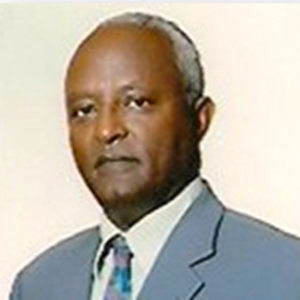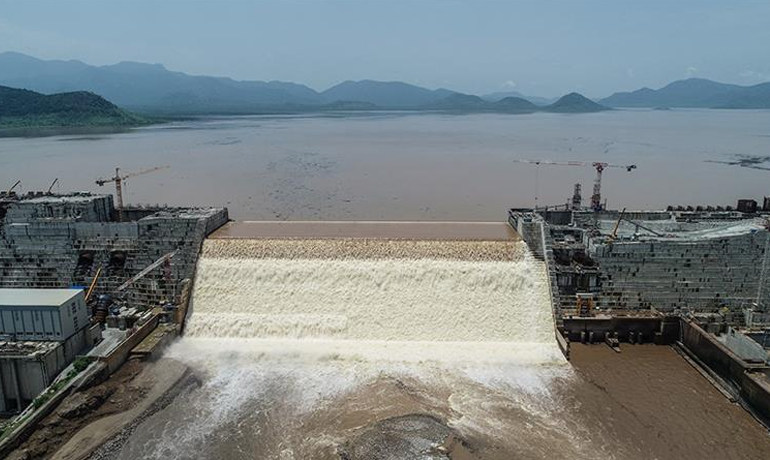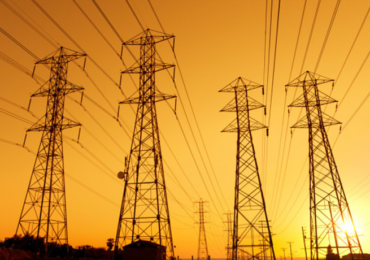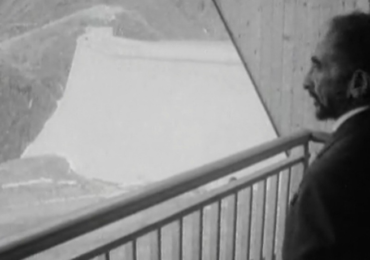The people of Sudan are nowhere near where they ought to be. Towns and villages along the Nile, including the capital Khartoum, are underdeveloped and lack proper planning and supporting infrastructure. General safety measures are non-existent along the banks of the Nile, with uncontrolled access by humans and animals. This has created a number of challenges, including increased pollution from untreated human waste and animal waste, chemicals from agricultural fertilizers and toxic substances from mining. In addition, there is severe point source pollution from domestic and industrial discharges, especially in urban areas.
In Sudan however, it has been the lack of adequate drainage systems and other safety measures along the banks of the Nile that have been of concern to observers and experts over the years. The latest floods affecting Sudan have destroyed thousands of homes and rendered tens of thousands of people homeless. Rainfall and the extent of the flooding have exceeded the previous records of 1946 and 1988; at least 100 people have been killed and the government has declared a state of emergency.
When Ethiopia announced that it anticipated more than average rainfall this year, experts forecasted flooding in the downstream countries of the Nile, including Sudan. Nevertheless, the government in Khartoum did not heed the warnings and implement measures to avoid the disaster that Ethiopia cautioned would unfold. It wasted valuable time indulging Egypt in its disastrous demarche trying to sabotage the Grand Ethiopian Renaissance Dam (GERD), the debilitating consequences of which the Sudanese people now suffer under. If the Sudan had paid heed to weather patterns and considered Ethiopia’s forecasts, possibly even assisted Ethiopia complete the GERD earlier have prevented it? The GERD filling schedule could have been accelerated and retaining more water would have reduced, and possibly prevented the flooding, so the short answer would be, yes. And it’s not like there have not been recent incidents of flooding to wake Sudan up to the possibility. Sudan suffered severe flooding in August 2019 resulting in the deaths of 60 people. In fact flooding in Sudan has affected people severely as the following table shows.
According to the UN’s Office for the Coordination of Humanitarian Affairs (OCHA), more than 830,000 people have been affected by flooding in all 18 Sudanese states, 600,000 of those in areas along the White Nile since July 2020. Heavy rains have caused rivers to overflow their dykes and banks, flooding vast areas and settlements along the Nile in the center of Sudan. Flooding occurred notwithstanding the decision by Addis Ababa to start filling the reservoir behind the GERD. The flooding would have been even worse had Ethiopia not retained the 4.9 BCM of Nile water it planned to use to test its power generation capabilities.
For those who fully understand the games Egypt indulges in, Sudan’s devastation could have been avoided if Sudan and Egypt had worked cooperatively with Ethiopia and accelerated the completion of the GERD and the subsequent filling of the reservoir instead of slowing the process down and attempting to stop it completely. The GERD is in Ethiopia on the Abbay (Blue Nile) River in the Benishangul-Gumuz Region, about 15 km east of the border with Sudan.
Egypt has unilaterally determined how the waters of the Nile it received would be allocated for upstream countries since the time it was a British Colony. Ethiopia has never accepted these unilateral claims and Egypt has sabotaged loans Ethiopia has tried to obtain to build dams since the 1960’s and interfered in the internal politics of the country supporting one rebel movement after another to disrupt successive Ethiopian governments from building their long-anticipated dam. In 2009, after toying with Ethiopia about an agreed plan to jointly build 4 small dams on the Abbay in Ethiopia, Egypt withdrew from the agreement suddenly without explanation. Ethiopia had had enough. The next year, it put in place its own plans to raise funds and to build the dam on its own, citing that the dam would be a sign of Ethiopia’s “Renaissance” a reference to Ethiopia’s preeminence as a regional power in ancient times.
Though Egypt and Sudan almost went to war in 2018 over the Hala’ib triangle, recently Egypt and Sudan cooperated attempting to thwart Ethiopia’s plans to complete and fill the GERD. Ethiopia had reasoned repeatedly trying to get Sudan and Egypt to understand the benefits of the Dam. Sudan argued, unbelievably, that the GERD’s filling schedule caused it concern for its safety and it wanted the filling delayed.
Some have cited past and current weather patterns in pointing out that flooding in Sudan would have been much worse had it not been for the GERD. Their argument is that given the change in weather patterns and unpredictability of rainfall in the future, the dam could actually play a critical role in preventing future disasters in downstream countries. The GERD which retained 4.9 BCM of water during the first filling period, has demonstrated that Sudan needs to work cooperatively with Ethiopia and has now a possible mitigation strategy to avert future disaster, unlike Egypt which uses the Aswan high dam Lake Nasser to protect itself from the potential of flooding as a result of the heavy flow from the Nile.
To be clear, it’s neither the Ethiopian government’s job nor its peoples to protect the Sudan from flood. Ethiopia built the GERD to generate power, not as a flood control tap for its neighbor. Sudan needs to assume responsibility for its own people’s lives. However, it’s clear that on its completion the GERD will provide Sudan flood control and minimize sedimentation on its hydro-power dams.
If Sudan believes the strong evidence that the GERD provides with the means of making its peoples’ lives easier, it needs to support and work with the government of Ethiopia to accelerate the dams completion. Most importantly, the troubling vacillation Sudan has shown on the GERD’s filling and construction needs to stop. Egypt’s threats and taunts have not delayed the work. Ethiopia will complete the GERD, and any project it deems necessary on any of its waterways.
If there is a final message to the governments of the Sudan and Egypt, it is this. Deal with the reality that you are given, not the one you construct out of thin air. Ethiopia will build its dams, and its other power generation structures. It will rise capably; regardless of what political and power games are afoot. Egypt’s daily media talk includes: “Being downstream, the two (The Sudan and Egypt) countries fear that their share of the water will be reduced, causing them serious water shortages. Egypt, in particular, depends almost entirely on the Nile River for its water needs”. It would be embarrassing for Egypt if it in fact was shown that this claim is patently false. The Water shortages Egypt is foretelling only because it is shipping water through its El Salam and Toshka Canals to Israel and to the desert it’s trying to turn into investors farmland. Egypt has untapped reserves of groundwater that will supply it for hundreds of years.
Ethiopians perished in the millions during the 1970, 1980, 1990 famine as a result of the drought. Not only did this not affect Egypt, though Ethiopia provided 86% of its life sustaining water, Egypt lacked the prerequisite generosity of spirit to assist in famine relief efforts when Ethiopia needed it. Worse, while Ethiopia was trying to transport famine aid to its starving population, Egypt was funding and equipping the rebels that were blowing up the roads and the food shipments. This unfortunate circumstance has clearly etched the importance of water availability and independence in the minds of Ethiopians who are tired of seeing their country men and women dying of thirst and in poverty. Ethiopia has been generous for centuries supplying its Water and Soil to the Sudan and Egypt from the Abbay every year. If the counter argument was made and Ethiopia asserted its right to free Petroleum from Egypt and Sudan, how would either country feel?
Nevertheless, though water is infinitely more precious than petroleum, Ethiopia’s position has always stated clearly, unerringly, that it will share its God given gift equitably and evenhandedly among all 11 riparian countries in the interest of peace, stability and prosperity to all its Nile neighbors. The Sudan’s benefit from the completion of Ethiopia’s GERD may even augur a new age of cooperation for the region.

Eng. Behailu Assefa
Engineer Behailu Assefa is a Managing Director of ASC Engineering Service and Terra Global Energy Developers engaged in the design and implementation of a 400MW wind power project in the Debre Berhan region of Ethiopia. He can be reached at bassefa[at]asceng.net



